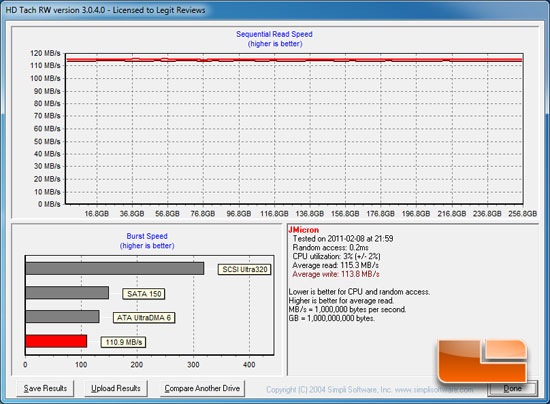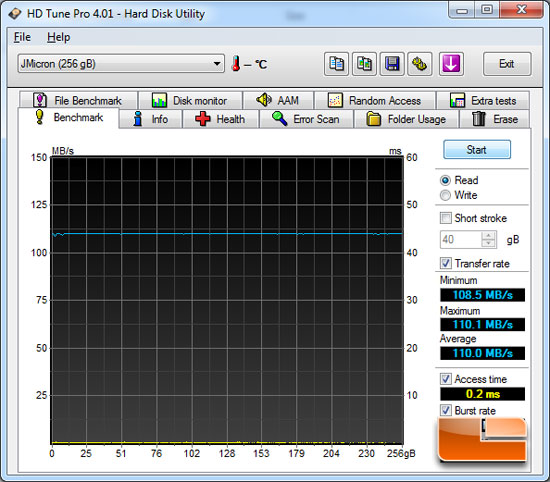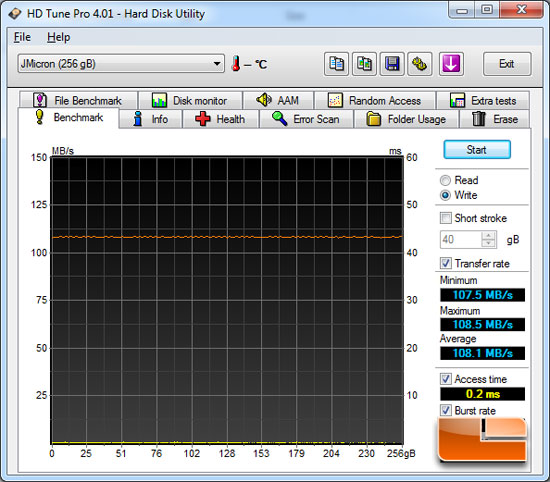BIOSTAR TP67XE Intel LGA 1155 Sandy Bridge Motherboard Review
USB 3.0 Performance Testing
HD Tach is a low level hardware benchmark for random access read/write storage devices such as hard drives, removable drives (ZIP/JAZZ), flash devices, and RAID arrays. HD Tach uses custom device drivers and other low level Windows interfaces to bypass as many layers of software as possible and get as close to the physical performance of the device possible.

Testing of the USB3 was done using the SUNBEAMTECH Airbox USB3.0 External Hard Drive Enclosure. The drive used was a Crucial Technology RealSSD C300 SSD.

Benchmark Results: The average read and write rates of the USB 3.0 on the BIOSTAR TP67XE were slower than what we would have liked to have seen. The average read rate was 113.27MB/s, which is ~4.6% slower than the GIGABYTE P67A-UD4. Looking at the average write speeds the BIOSTAR TP67XE was 104.43MB/s or 10.3% slower than the GIGABYTE P67A-UD4.
HD Tune Pro 4.01 is an extended version of HD Tune which includes
many new features such as write benchmark, secure erasing, AAM setting,
folder usage view, disk monitor, command line parameters and file
benchmark.


Our testing of the USB 3.0 performance was done using the SUNBEAMTECH Airbox USB3.0 External Hard Drive Enclosure. The drive used was a Crucial Technology RealSSD C300 SSD.

Benchmark Results: Our numbers for HD Tune are quite similar to above. The BIOSTAR TP67XE had an average read rate of 104.77MB/s which is ~7.5% behind the GIGABYTE P67A-UD4. Our average write on the BIOSTAR TP67XE is significantly slower than we would have liked to have seen. Despite using the Crucial C300 256Gb SSD we only saw an average of 78.7MB/s average write; this is nearly 30% behind our top performing board.

Comments are closed.